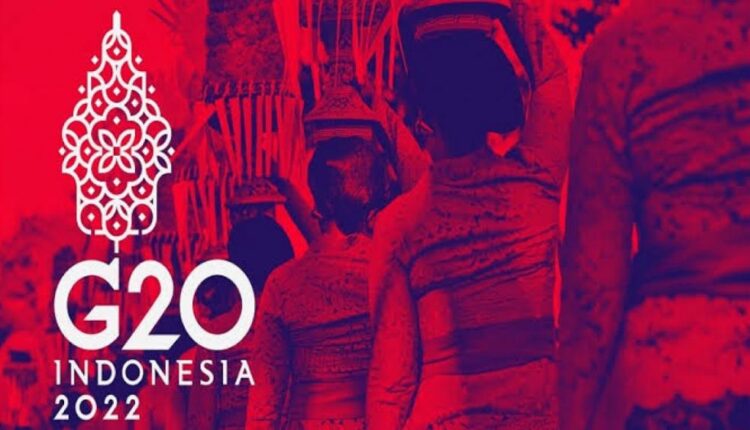Indonesia deserves to be a reference for G20 countries to overcome the food crisis
By: Ayu Sasmita *)
The global food crisis is now a new challenge for every country in the world. There are at least about 60 countries that are on the verge of collapse, where 42 of them have been confirmed to fall due to the food crisis. The situation that occurred was inseparable from the impact of the Russian-Ukrainian invasion which caused the global food chain to be disrupted. Where the two countries are producers and exporters of the world’s main commodities such as oil and gas, mining, to food. This has resulted in other countries experiencing a food crisis, followed by the prices of basic necessities soaring.
With the geopolitical conflict between Russia and Ukraine and export-import restrictions, food supplies are increasingly hampered. These obstacles resulted in the price of food needs touching the highest level. World food prices crept up almost 13% in March 2022 and have the potential to continue to increase to 20% by the end of 2022.
Several countries that have been depending on food products from imports have been unable to move because they do not have foreign exchange reserves which have resulted in these countries having to be trapped in very high debt loans for food imports.
President Jokowi has ordered his staff to find ways and prepare themselves to avoid the threat of a food crisis. Jokowi invites farmers in Indonesia to take advantage of the land between oil palm plantations by planting all alternative materials that can be a source of food such as sorghum, corn, to porang. Jokowi wants Indonesia not only to succeed in getting through the threat of a food crisis, but also to be independent, and to take advantage of export opportunities so that food needs are maintained.
On the other hand, the Working Committee (Panja) of Commission IV DPR RI suggested that the government redistribution of subsidized fertilizers and seeds which are believed to be effective in maintaining food security accompanied by validation of recipient data. This suggestion was well received by the Minister of Foreign Affairs, Retno Marsudi. He emphasized the importance of supplying fertilizers to overcome the food crisis.
Retno Marsudi stated that if Indonesia failed to address the fertilizer problem, the food situation would worsen, especially regarding rice. The rice problem itself is closely related to the 2 billion human souls that must be fed. To increase land productivity, the government makes sure to regularly evaluate the distribution of fertilizer and seed subsidies so that they are right on target.
Not only subsidizing fertilizers and seeds for the agricultural sector, the government through the Minister of State-Owned Enterprises (BUMN), Erick Thohir officially launched the SOLUSI (Solar for Cooperatives) program for fishermen. The launch of the diesel subsidy program at Rp 6,800/liter is in accordance with President Jokowi’s orders to find a way out to maintain the welfare of fishermen and prevent food crises by improving the fisheries business model and involving cooperatives as the first aggregators and guarantors for fishermen.
The Minister of Cooperatives and SMEs, Teten Masduki believes that the SOLUSI program is the answer to a number of problems that have been faced by fishermen. It is known that 60% of fishermen’s production costs have been used only for fuel needs. The diesel subsidy is the right step that provides great benefits for the welfare of fishermen.
When viewed from the various efforts made by the government, Indonesia is very worthy of being a reference for other countries, especially in the G20 Indonesia 2022 Presidency in overcoming the food crisis that continues to threaten. This is because Indonesia has succeeded in being self-sufficient in rice for 3 (three) consecutive years, namely 2019, 2020 and 2021.
Bogor Agricultural University (IPB) academic, Prima Gandhi said that Indonesia is worthy of being a reference for other countries because the government has maintained its commitment to preventing food crises by providing fertilizer subsidies to farmers and diesel subsidies to fishermen.
Prima Gandhi also said that there are 3 (three) main factors that Indonesia can offer to countries that are in crisis, where the three offers have been implemented by the government so far. First, Local Food, namely food diversification which aims to anticipate the global food crisis by providing local food sources of non-rice carbohydrates that can be used as basic needs.
Second, the National Food Barn Program ( Food Estate ), namely food development that is carried out in an integrated manner including agriculture, plantations, and even livestock. This policy program is intended as land expansion to increase national food reserves.
Third, Sustainable Food Agricultural Land (LP2B) is agricultural land that is determined to be protected and developed consistently to produce staple food. In this program, the government must oblige every region in Indonesia to implement LP2B regulations in order to be a solution for protecting agricultural land.
Not only that, the Food Agriculture Organization (FAO) recognizes Indonesia’s resilience, especially in the agriculture and food sectors. FAO believes that Indonesia can take advantage of its position as Chair of the G20 to encourage and invite G20 member countries to collaborate in overcoming the problem of food crises and hunger that continues to increase in the world. Of course this is the right capital for Indonesia to take the lead in other countries in solving the problem of the global food crisis.
*) The author is a contributor to the Persada Institute
